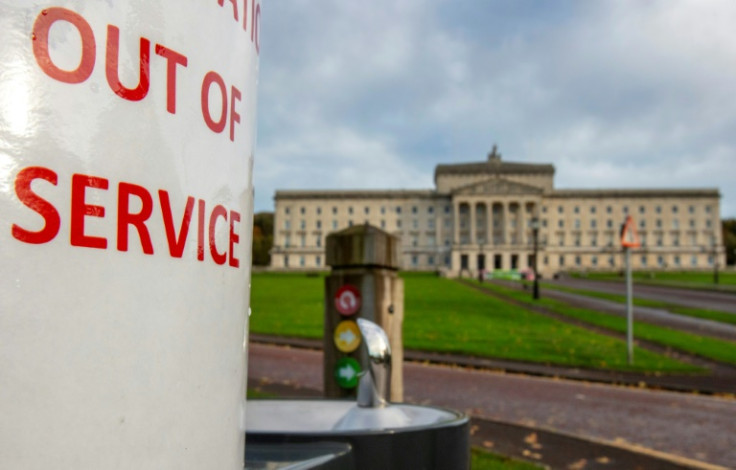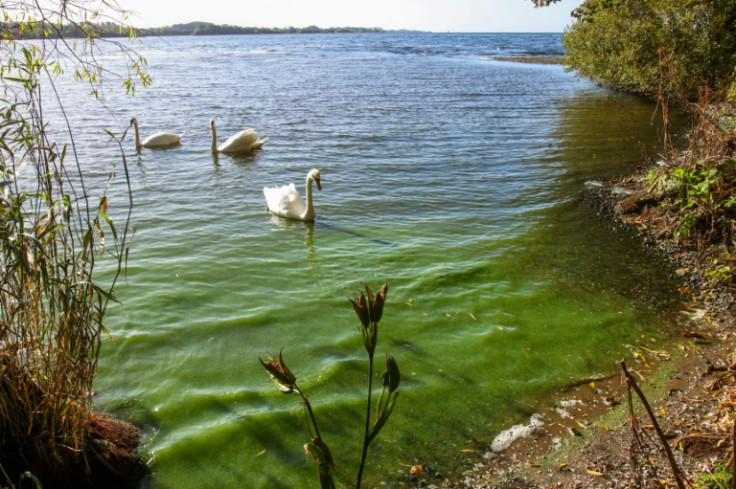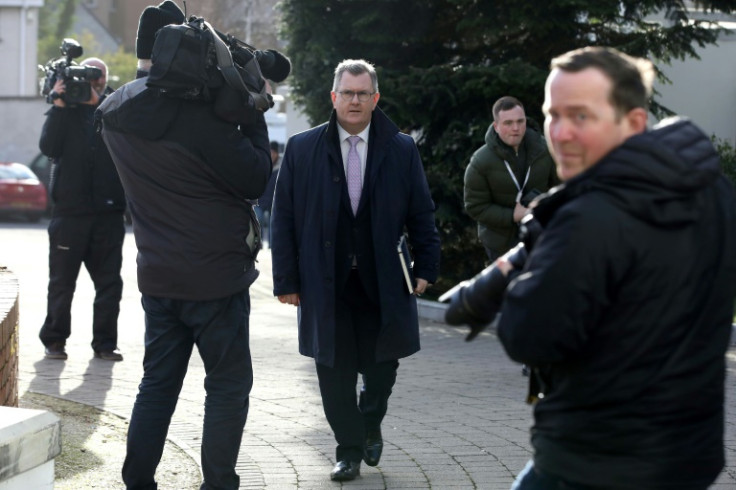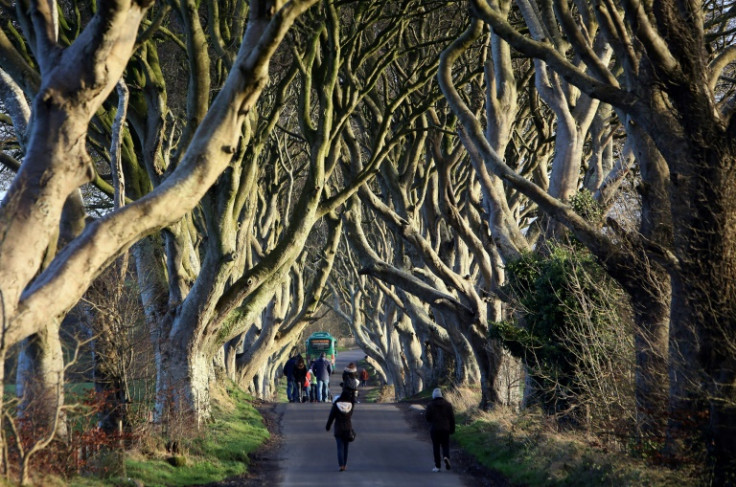Frustration Mounts Over Political Impasse In N.Ireland

A lengthy boycott of devolved government in Northern Ireland will stretch into 2024 after talks to end the impasse stalled Tuesday, with frustration mounting over political dysfunction and crumbling public services.
The Democratic Unionist Party (DUP) withdrew from the Northern Ireland Assembly at Stormont in February 2022, forcing its mothballing because of post-Brexit trading rules it said undermined the region's place in the wider United Kingdom.
But the resultant cuts in central funding from London have led to a decay in vital everyday public services such as hospitals, road maintenance and education.
Rolling strikes during the year by public transport staff, nurses and teachers demanding long held up pay increases have fuelled growing discontent, with potentially more walkouts to come in January.
Anger over the impasse is acute at hospitals in the province, where waiting times for treatment and surgery are the longest in the country.
"Nothing seems to function properly in this country," Leonard Shields, 82, told AFP outside Craigavon hospital west of Belfast.
"It's a disgrace there is no local government here for almost two years, I should have regular checks but haven't been called up in ages," said the pensioner from Annalong who suffers from colitis.
"Politicians need to get back to work," Trevor Johnstone, a 34-year-old businessman shopping for Christmas presents, told AFP at a taxi queue in Belfast during the latest bus and train strike.
But while the inconvenience was "annoying", he said he sympathised with the workers' demands.
The impact of the power vacuum came into sharp focus after a series of recent environmental crises.
Business and shop owners in town centres devastated by flooding in October complained that London's emergency financial aid response was feeble compared to that offered to those affected by the government in Dublin in the neighbouring Republic of Ireland.
During the summer months, damage caused by spectacular pollution on Lough Neagh -- the largest freshwater lake in the UK -- could have been mitigated by swift intervention, say angry locals.
Blooms of toxic blue-green algae on the vast lake which supplies almost half of Northern Ireland's drinking water grew so large they were visible from space.
Primarily caused by sewage and farming waste run-offs as well as climate change the algae -- described by some pundits as a metaphor for political stagnation -- later subsided.
But it left people living nearby fearful about its return.
"It's left me on the backfoot, preparing to combat the same situation next year if it was to arise again," Gavin Knox, whose watersports business at Ballyronan marina by the lake was hit by the outbreak.
Neglect by the authorities also hit another Northern Irish landmark, the rural avenue lined with beech trees famed for its appearance in the "Game of Thrones" TV series.
Known in the show as "The Dark Hedges", several of the dying trees, one of Northern Ireland's top tourist attractions, were cut down last month. Critics blamed negligent management.
The DUP's political foes, including the largest pro-Ireland nationalist party Sinn Fein, have heaped pressure on the party to return to Stormont.
On Tuesday UK Northern Ireland Secretary Chris Heaton-Harris, responsible for setting budget allocations for public services, offered the main parties a "final" package of GBP3.3 billion ($4.2 billion) on condition that the executive is restored.
But ruling out a deal before Christmas, the DUP said the financial offer was still not enough to end its boycott and that talks on post-Brexit trading arrangements were not yet finalised.
Unionist hardliners insist the so-called "Windsor Framework" negotiated between London and Brussels leaves in place a de facto border in the Irish Sea at the behest of EU law.
Only the removal of the "internal frontier" can clear the path for a return to the Stormont executive, a group linked to pro-UK loyalist paramilitaries said Tuesday.
Posters erected last week by a fringe pro-UK party Traditional Unionist Voice (TUV) that read "Stop DUP sellout!" hinted at its suspicion that the DUP was ready to compromise.
DUP leader Jeffrey Donaldson angrily accused the TUV of "intimidation" and seeking to "undermine their fellow unionists".
The combative response was a signal that he is "paving the way" for an imminent return to Stormont, according to James Pow, a politics lecturer at Queens University Belfast.
"It is harder and harder for the DUP to distance its boycott from the day to day decline of public services -- that may be accelerating its need for a deal," he said.



© Copyright AFP 2024. All rights reserved.







